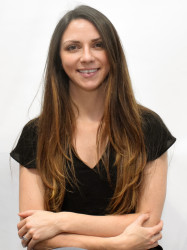Sequential Simulation (SqS)
Sequential Simulation (SqS) is the physical re-enactment of care pathways and healthcare related scenarios (periods of time) undertaken for education, training and engagement purposes.
Current research has been on conceptual and process model development as well as individual applied projects (see below)
See http://www.imperial.ac.uk/engagement-and-simulation-science/our-work/projects/sequential-simulation/ for more information
The Time Travelling Operating Theatre

The Time Travelling Operating Theatre invited audiences to explore the past and present of surgery through re-enactments of three operations from the nineteenth, twentieth and twenty-first centuries, all performed by practising or retired clinicians. These short performances opened up a range of questions about how the operating theatre has changed in the last 130 years and how it might go on to develop in the future. Following these three performances, there was an open discussion between the audience, the performers, and a small panel of guests with expertise in surgical history, ethics and policy around the future of surgery.
The project was being researched as a potential new methodology for engaging publics in complex healthcare-related discussions.Data analysis is still ongoing.
For more information on the project please visit: http://ttot1884.wixsite.com/timetravellingop
VISIOT™ VIDEO-SUPPORTED SIMULATION FOR INTERACTIONS IN THE OPERATING THEATRE

ViSIOT™ trains new social interaction strategies to operating teams. The model draws on original research conducted in the operating theatre of a London teaching hospital. The objective of the training is to improve verbal and nonverbal interactions between nurses, surgeons, and anaesthetists that often fall outside explicit training. These include visual monitoring of colleagues, verbal responsiveness, speaking up about distractions, seeking prompt clarification when needed, and managing the WHO Surgical Safety Checklist. The model includes two scenarios and video-supported debriefing, during which authentic video data from the operating theatre are reviewed.
For more information please visit: http://www.visiottraining.com/
Transient Teams in the Operating Theatre

The study addressed a key challenge for the National Health Service (NHS) in the United Kingdom (UK) and other major organizations across the world by investigating professional communication in ‘transient’ teams - that is, communication between professionals who work on recurring tasks, such as surgical operations, in teams that exist only for the duration of the task, or even only for parts of it. Increasingly healthcare professionals step in and out of such newly formed teams, participating in the performance of complex tasks, often with colleagues whom they have never met before. This can have a profound effect on their work. Members of transient teams do not always know each other well, as they used to when these teams were much more stable. Our observational research in the operating theatre showed a glimpse of how this impacts on the communication between nurses and surgeons.
Please visit https://transientteams.wordpress.com/ for more information
Transformative Simulation

Transformative Simulation (TS) is the use of simulation to bring stakeholders together to collaborate on identifying issues, re-imagining and re-designing healthcare systems and approaches, influencing policy and changes, testing new interventions. It uses simulation techniques and approaches to level the playing field amongst healthcare professionals, managers, patients, publics, policymakers, charities, academics, educationalists, administrators and more.
Social Network Analysis of Communication in Operating Theatres

We are exploring whether a Social Network Analysis approach can address the problem facing the identification of different types of verbal and non-verbal communication practices in operating theatres (i.e., speech, gaze, movement, gesture, and handling of objects) whilst sustaining a novel framework and drawing on an appropriate methodology to systematically analyse video data.
Given the crucial role of effective teamwork and communication between healthcare providers for patient safety and hospital costs, the collection and analysis of continuous-time data on interactions within surgical teams may be used to improve work practices within operating theatres, and develop a better understanding of the relation between team communication and team performance.

